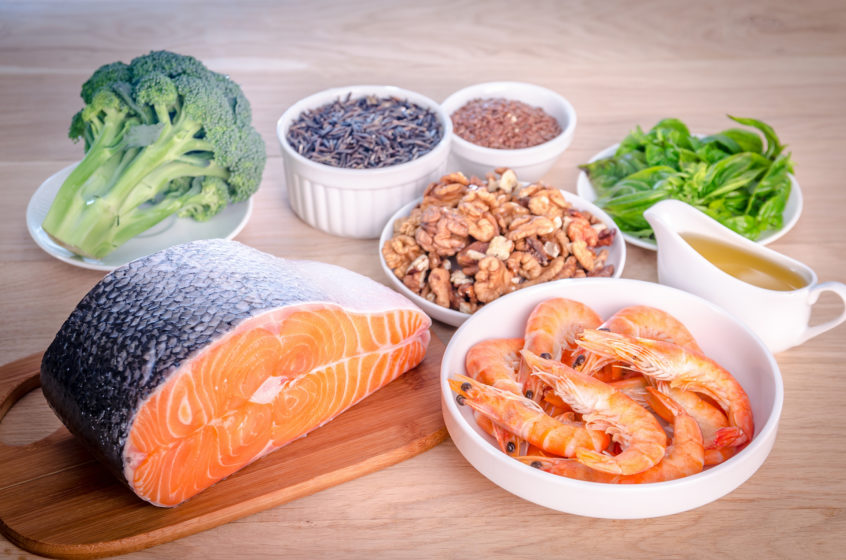What foods to eat and avoid when we hit menopause
An inevitable life-changing event for all women is the menopausal stage. Women have different reactions to it. Some dreaded it as it gives them a roller coaster of hormonal imbalance, while some have it easy and are actually thankful that they are already done with the days when they had to worry about menstruation. The difficulty presented by menopause is that no matter how abundant the information we have on it, no one is ever really prepared for it.
But that does not mean women should take the matter lightly. In fact, it’s best that when menopause begins at a woman’s early 50’s.she should prioritize staying fit more than ever, as this is her body’s stage of facing a new phase of life.Though many experts and practitioners debunk the idea that there is “menopause diet”, that does not mean you can’t try eating smart and eating right. You still need to work on supplying your body the nutrition it needs to maintain your strength and stay fit.
First, you should realize the kinds of food you should steer clear from, here’s a helpful list and a brief explanation on why you should steer clear from them.
Cut Down On Caffeine
Stacking up on cups of coffee, sodas, energy drinks or other caffeinated drinks might have boosted your energy level at work or through the busy years of handling so many responsibilities. However, maybe at your age, it’s time to take things easier. It’s a good idea to cut down your caffeine intake, particularly when you notice that after drinking a cup of your favorite latte seems to be always followed by an episode of hot flashes.
Skip White And Refined
Yes, it is difficult to avoid processed and refined foods since they are very convenient and tastes good. These are products such as regular pasta, white bread or anything made from refined flour, in addition to that, white rice. Even though they are able to give you carbohydrates providing fuel to your body, they are still considered empty carbs because they only contain limited nutrition and does not compensate to the health benefits you can get from fiber-rich whole food alternatives. Women going through menopause were suggested by the National Health Services to consume more of their carbs from more nutritious sources. To avoid the added baggage of extra weight gained from refined carbs, opt for wholemeal and wholegrain starchy products that are able to give you the vitamins, minerals, and fiber you need, inclusive of the energy boost from the carbs. Consider enjoying more of brown rice than white, also trying switching up your regular pasta for whole wheat pasta, and of course, ditch the white bread and go for high fiber wheat bread.
Eat Less Spice
This is bad news if you love your chili, spice can actually trigger hot flashes. It even comes to a point where it becomes a bit unbearable, in which case maybe you should cross it out from your food shopping list next time. Your metabolism can be greatly boosted by spicy food giving you a hotter sensation beneath your collar. You must also be wary that some veggies such as spicy peppers for example; cayenne contain a good amount of capsaicin, enough to cause “heat” both on your palate and on your body.
Skip The Tipple, Ban The Booze
Without even realizing it, alcohol consumption can be a perfect concoction for disaster among menopausal women. Those unwelcomed hot flashes can be commonly triggered by alcohol. But the worse news is it can also increase both the risk of bone loss or osteoporosis or cardiovascular disease if your consumption is excessive. Sad to say, the limit is just seven drinks a week with a maximum of three on a single day. If you found this information a little too late, my heart goes out to you.
Another thing you have to be mindful of is the interactions between medications and alcoholic beverages for it could cause problems such as indigestion, high cholesterol, high blood pressure, and even arthritis. A study from the National Institute on Alcohol Abuse and Alcoholism states that not just women, but older people, in general, are at a higher risk due to their bodies’ slower function of breaking down alcohol.
Now, let’s learn about the foods you should be focusing on;
Feast On Fatty Fish, Fortified Milk, And Farm-Fresh Eggs
Enough vitamin D which means getting 30 ng/mL that translates to 400 to 600 IU is important ti ensure your able to make the most of your calcium intake. This is great if you love seafood because you can indulge especially in fatty fish like sardines, herring, mackerel, or salmon. Enjoy a breakfast that includes Vitamin D fortified milk or cereal, or simply have an egg.
Enjoy Soy
If you don’t have a taste for soy, this might be the right time to develop one. Soy products intake were said to be helpful for women in coping with those annoying hot flashes. A study suggested that 75 postmenopausal women who had a minimum of seven hot flashes every day, soy isoflavone extract intake for a 16 week period resulted in a 61 percent reduction in their incidence of hot flashes.Great sources of soy can be attained through tofu, soy meal or grits, or even soy flour.10 to 15 gm of soy protein daily is the recommended dosage. The soy contains phytoestrogens or plant estrogens which mimics the estrogen in your body which somehow compensates the estrogens you lose since your body produces lower levels of it since menopause began. If we’re talking menopause diet, it means we are regarding food that can provide you with estrogen in forms of sesame seeds, sunflower seeds, pumpkin seeds, green beans, celery, and rhubarb.
Tank Up On Calcium-Rich Food
Although the primary line of defense is still considered to be hormone replacement therapy which works as it increases calcium levels by increasing progesterone and estrogen levels, you can still work your share by making sure you attain the recommended amount of calcium from your daily diet. It’s important to get as much as 1,200 mg/day when you’re postmenopausal.
Have Lots Of Fresh Vegetables And Fruits
And how can we ever forget to mention vegetables and fruits! If you have been practicing healthy diets through getting enough vegetables and fruits in your diet, that’s great.However, if you don’t, it’s never too late to start. As the American Heart Association suggested that this is the life stage when high-risk behavior from your younger days (like smoking or eating high-fat food) will take its toll.So at least try counteracting it by consuming food with rich antioxidant content.
via What foods to eat and avoid when we hit menopause

